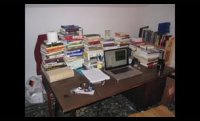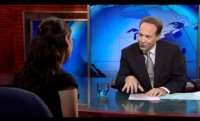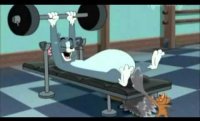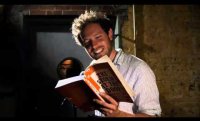University of Wisconsin Professor Wins for Year's Worst Sentence
The Bulwer-Lytton Fiction Contest announced, for the twenty-ninth year running, the worst sentence submitted to its annual race for the most wretched first line of an imaginary novel.
The writer of this year's worst opener is professor and admitted punster Sue Fondrie, who teaches in the curriculum and instruction program at University of Wisconsin in Oshkosh. She will receive as her prize "a pittance."
Fondrie took top honors for the line—the shortest to win in contest history—"Cheryl’s mind turned like the vanes of a wind-powered turbine, chopping her sparrow-like thoughts into bloody pieces that fell onto a growing pile of forgotten memories."
The sentence joins a cast of other misfits, run-ons, and purple prose creations in genres such as crime, historical fiction, and romance, as well as a collection of "vile puns," selected for this year's auxiliary honors. The notable lines are posted on the Bulwer-Lytton website.
The contest, established 1982 by English professor Scott Rice at San Jose State University, is named for Edward George Earle Bulwer-Lytton, the author of the familiar opening line "It was a dark and stormy night." Entries are accepted via e-mail throughout the year.









